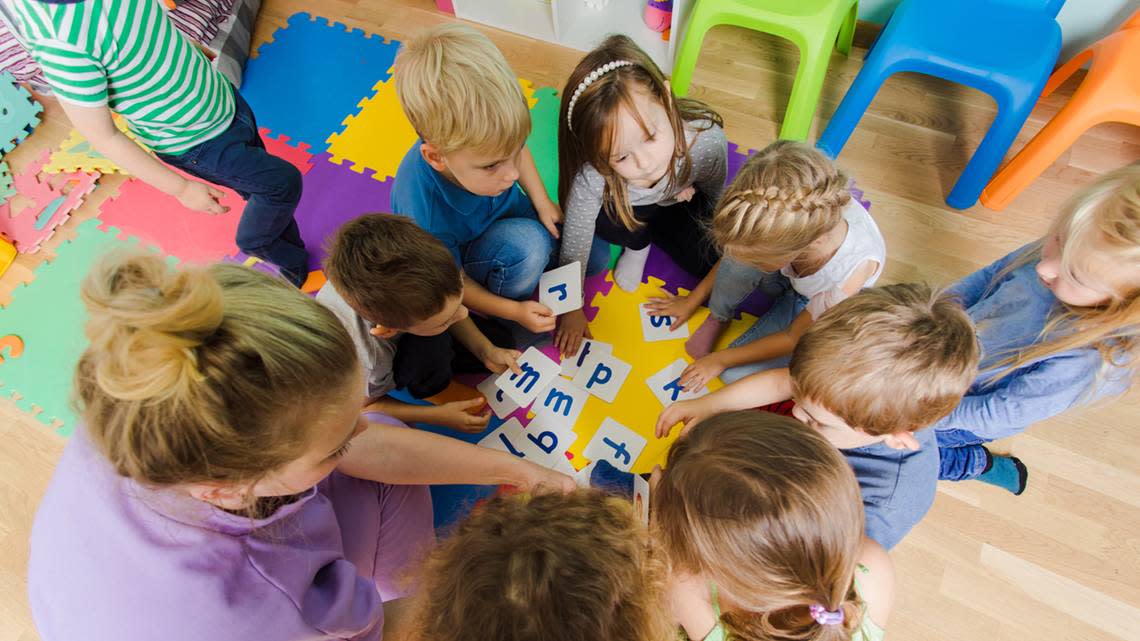Tax credit plan would help 430,000 KS and MO kids in poverty. Why are Dems on the fence?

- Oops!Something went wrong.Please try again later.
Rep. Emanuel Cleaver wishes there was a child tax credit when he was a kid.
He grew up poor, in Texas, and there wasn’t much federal support for his family. Had there been a little extra money to help, he thinks it would have gone a long way.
“I am all for lifting up kids out of poverty,” Cleaver said in an interview with The Star on Tuesday. “I was one of them that didn’t get lifted. I know how it feels. I’ve been there experientially.”
But Cleaver still isn’t sure whether he’ll support a newly proposed expansion of the child tax credit – not because he doesn’t support expansion, but because he worries about provisions in the bill that give tax breaks to businesses.
“I’m not sure that I’m ready to genuflect over a deal that makes the corporate tax provisions a number one priority,” Cleaver said.
The deal, negotiated by Rep. Jason Smith, a Missouri Republican, and Sen. Ron Wyden, an Oregon Democrat, would increase the child tax credit, helping millions of children living in poverty. But it helps fewer children than an historic one-year credit in 2021 that drastically cut the nation’s child poverty rate.
It balances enhancements to the child tax credit by allowing businesses to make more tax deductions for expenses like research and machinery and cut short a COVID-era tax credit that encouraged businesses to keep employees on their payroll during the pandemic shutdown. It also aims to help build more affordable housing, by expanding the Low-Income Housing Tax Credit, a public-private partnership that encourages the construction of low-income housing.
“This legislation locks in over $600 billion in proven pro-growth, pro-America tax policies with key provisions that support over 21 million jobs,” Smith said in a written statement announcing the deal. “I look forward to working with my colleagues to pass this legislation.”
An estimated 136,000 Kansas children and 295,000 Missouri children would become eligible for the program, according to the Center on Budget and Policy Priorities, a nonprofit that studies taxes.
Some Democratic lawmakers said the child tax credit expansion didn’t go far enough to justify the business tax deductions — like Rep. Rosa DeLauro, a Connecticut Democrat who helped craft a 2021 expansion of the child tax credit that expired after only a year. DeLauro said the agreement would leave millions of children in “preventable poverty.”
Democrats have spent the past few years pushing for a child tax credit similar to the one they managed to secure in 2021, with the American Rescue Plan, a COVID-19 recovery bill that passed in President Joe Biden’s first year with only Democratic support.
Under that expansion, the cap on how much someone could get from the child tax credit jumped from $2,000 to $3,600, and included people who didn’t have income. It was also mailed as a monthly check to some people who were eligible.
The credit was hailed for cutting child poverty — a study by the Census Bureau found that it cut child poverty in half, while other estimates say it cut child poverty by more than a third — but it was costly. In 2022, the nonpartisan Congressional Budget Office found that making the credit permanent would cost more than $1.6 trillion over 10 years.
A later effort that would have partially expanded the credit past 2021 passed the House in the so-called “Build Back Better” bill, but was cut out of the Senate’s version of the bill, called the “Inflation Reduction Act”, which focused mostly on climate provisions.
“Well the issues are political,” said Robert Greenstein, a visiting fellow with the Hamilton Project at the Brookings Institute. “And part of the politics is cost.”
The new expansion of the child tax credit would be scaled down. It allows for inflation-adjustment increases to the maximum amount a family can receive in 2024 and 2025 and lifts the amount that’s “refundable,” meaning you get the money beyond what’s canceled out in your income tax mailed to you.
But the credit is still not available for someone who makes less than $2,500 in a year, effectively blocking the credit from low-income families that may need the money. About 1.8 million children under 17 were ineligible for the tax credit in 2022, according to the Tax Policy Center, because their families did not make enough to be eligible for the credit. Another 16.8 million only received partial credit because they made too little.
“You would not say, ‘Oh, this is like halfway back to 2021.’” Greenstein said. “It isn’t close to halfway back to 2021. By the same token, making five and a half million low income children less poor or lifting them out of poverty is significant.”
While White House press secretary Karine Jean-Pierre has said the child tax credit is important to Biden, the White House has not yet taken a position on the bill. But it’s unclear whether it will even get to the White House.
Senate Majority Leader Chuck Schumer, a New York Democrat, offered his support after it was introduced Tuesday, but it’s not clear whether the plan has the support of 60 senators in order to clear the Senate.
And it would have to make it through the House, where a narrow Republican majority has allowed hard-line members to block pieces of legislation they don’t deem conservative enough, which means it will likely need Democratic support.
Rep. Sharice Davids, a Kansas Democrat who has been pushing for an expanded child tax credit for several years, is one of the Democrats willing to vote for the bill.
“This is exactly how Washington should function — both parties coming together to lower costs and make life easier for Kansans — and I’m eager to work with my colleagues to get this done,” Davids said.

